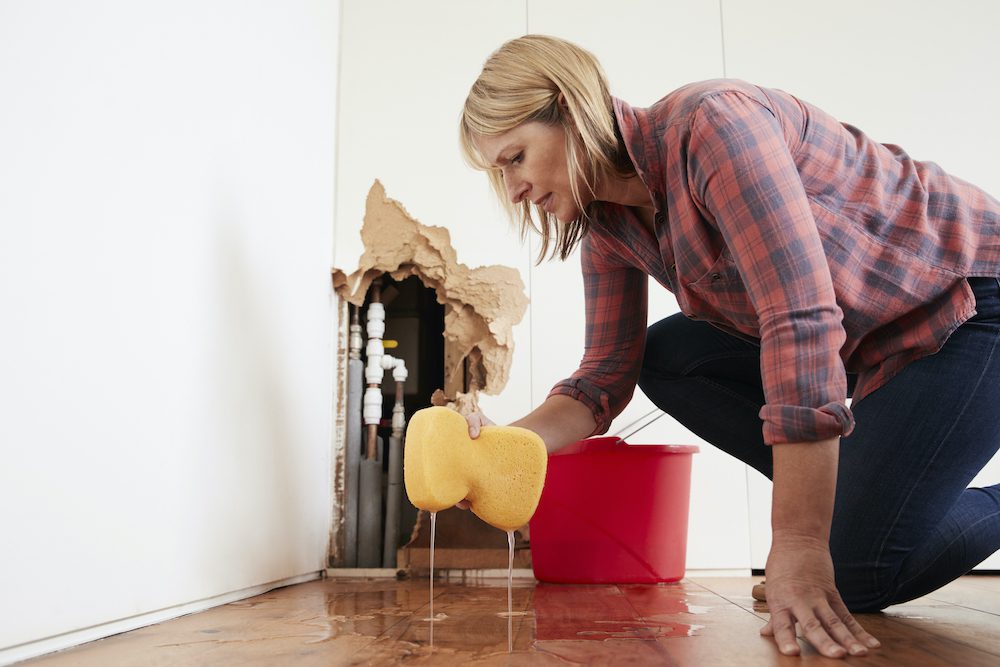The writer is making a few great pointers on the subject of Leaking water lines in general in this great article beneath.

Early discovery of leaking water lines can mitigate a possible disaster. Some tiny water leaks may not be noticeable.
1. Examine the Water Meter
Every house has a water meter. Inspecting it is a guaranteed manner in which helps you discover leakages. For beginners, switch off all the water sources. Guarantee nobody will certainly purge, make use of the faucet, shower, run the cleaning maker or dish washer. From there, go to the meter and watch if it will change. Because nobody is utilizing it, there should be no movements. If it moves, that suggests a fast-moving leak. Also, if you find no changes, wait an hour or more as well as inspect back once more. This suggests you may have a slow-moving leak that might also be below ground.
2. Check Water Consumption
Analyze your water costs and also track your water intake. As the one paying it, you need to notice if there are any type of discrepancies. If you spot sudden changes, in spite of your consumption being the same, it suggests that you have leakages in your plumbing system. Bear in mind, your water expense should drop under the same variety every month. An unexpected spike in your bill shows a fast-moving leak.
Meanwhile, a consistent boost monthly, despite the exact same habits, shows you have a sluggish leak that's likewise gradually intensifying. Call a plumber to thoroughly inspect your residential property, specifically if you feel a cozy location on your flooring with piping underneath.
3. Do a Food Coloring Test
30% comes from toilets when it comes to water usage. Examination to see if they are running properly. Drop specks of food shade in the storage tank and also wait 10 mins. There's a leakage in between the storage tank and dish if the color somehow infiltrates your bowl during that time without flushing.
4. Asses Exterior Lines
Do not neglect to examine your exterior water lines too. Should water leak out of the link, you have a loosened rubber gasket. One little leak can throw away tons of water as well as increase your water bill.
5. Assess the situation as well as check
Property owners ought to make it a routine to examine under the sink counters and also also inside closets for any bad odor or mold growth. These two red flags indicate a leakage so prompt focus is called for. Doing routine assessments, also bi-annually, can conserve you from a major problem.
Inspect for discolorations as well as deteriorating as most pipelines and home appliances have a life span. If you presume dripping water lines in your plumbing system, don't wait for it to escalate.
Early discovery of leaking water lines can alleviate a potential calamity. Some tiny water leakages might not be visible. Inspecting it is a guaranteed method that helps you find leaks. One small leakage can squander bunches of water and surge your water costs.
If you presume leaking water lines in your plumbing system, do not wait for it to escalate.
WARNING SIGNS OF WATER LEAKAGE BEHIND THE WALL
PERSISTENT MUSTY ODORS
As water slowly drips from a leaky pipe inside the wall, flooring and sheetrock stay damp and develop an odor similar to wet cardboard. It generates a musty smell that can help you find hidden leaks.
MOLD IN UNUSUAL AREAS
Mold usually grows in wet areas like kitchens, baths and laundry rooms. If you spot the stuff on walls or baseboards in other rooms of the house, it’s a good indicator of undetected water leaks.
STAINS THAT GROW
When mold thrives around a leaky pipe, it sometimes takes hold on the inside surface of the affected wall. A growing stain on otherwise clean sheetrock is often your sign of a hidden plumbing problem.
PEELING OR BUBBLING WALLPAPER / PAINT
This clue is easy to miss in rooms that don’t get much use. When you see wallpaper separating along seams or paint bubbling or flaking off the wall, blame sheetrock that stays wet because of an undetected leak.
BUCKLED CEILINGS AND STAINED FLOORS
If ceilings or floors in bathrooms, kitchens or laundry areas develop structural problems, don’t rule out constant damp inside the walls. Wet sheetrock can affect adjacent framing, flooring and ceilings.
https://www.servicemasterbyzaba.com/blog/how-to-detect-water-leakage-in-walls/

I ran across that piece on Hacks to detect leaks when doing a lookup on the internet. Please set aside a second to share this blog posting if you liked it. We treasure reading our article about Detecting hidden plumbing leaks.
Call, we deliver!